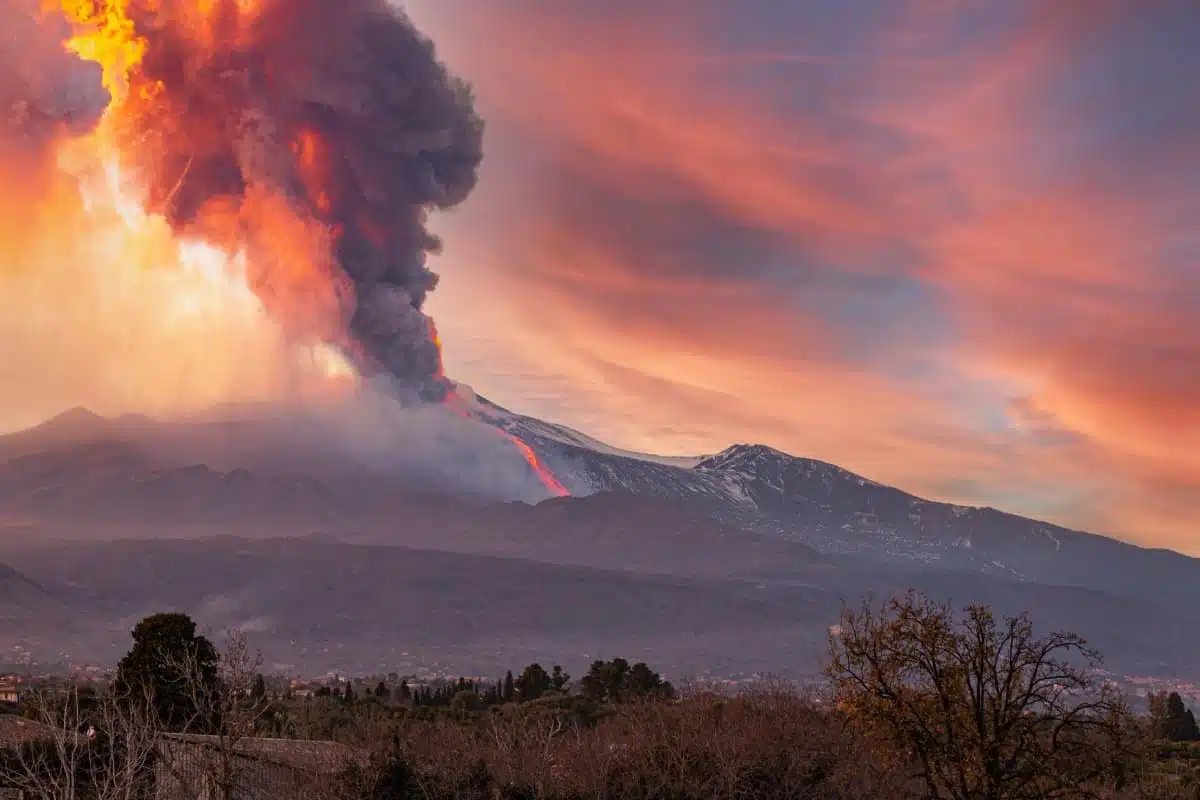Embark on a thrilling expedition to explore some of the world’s most iconic volcanoes. This guide is for adventure enthusiasts who seek the exhilarating experience of encountering these majestic fire giants up close. From the snow-capped peaks of Mount Fuji to the active lava flows of Kīlauea, each volcanic destination offers a unique blend of natural beauty, geological magic, and cultural significance. These journeys are to discover the awe-inspiring power of nature and understand the profound impact volcanoes have had on the landscapes and communities surrounding them. Prepare to traverse diverse terrains, from lush rainforests to stark lunar landscapes, and experience the world from a perspective few dare to explore.
1. Mount Fuji, Japan
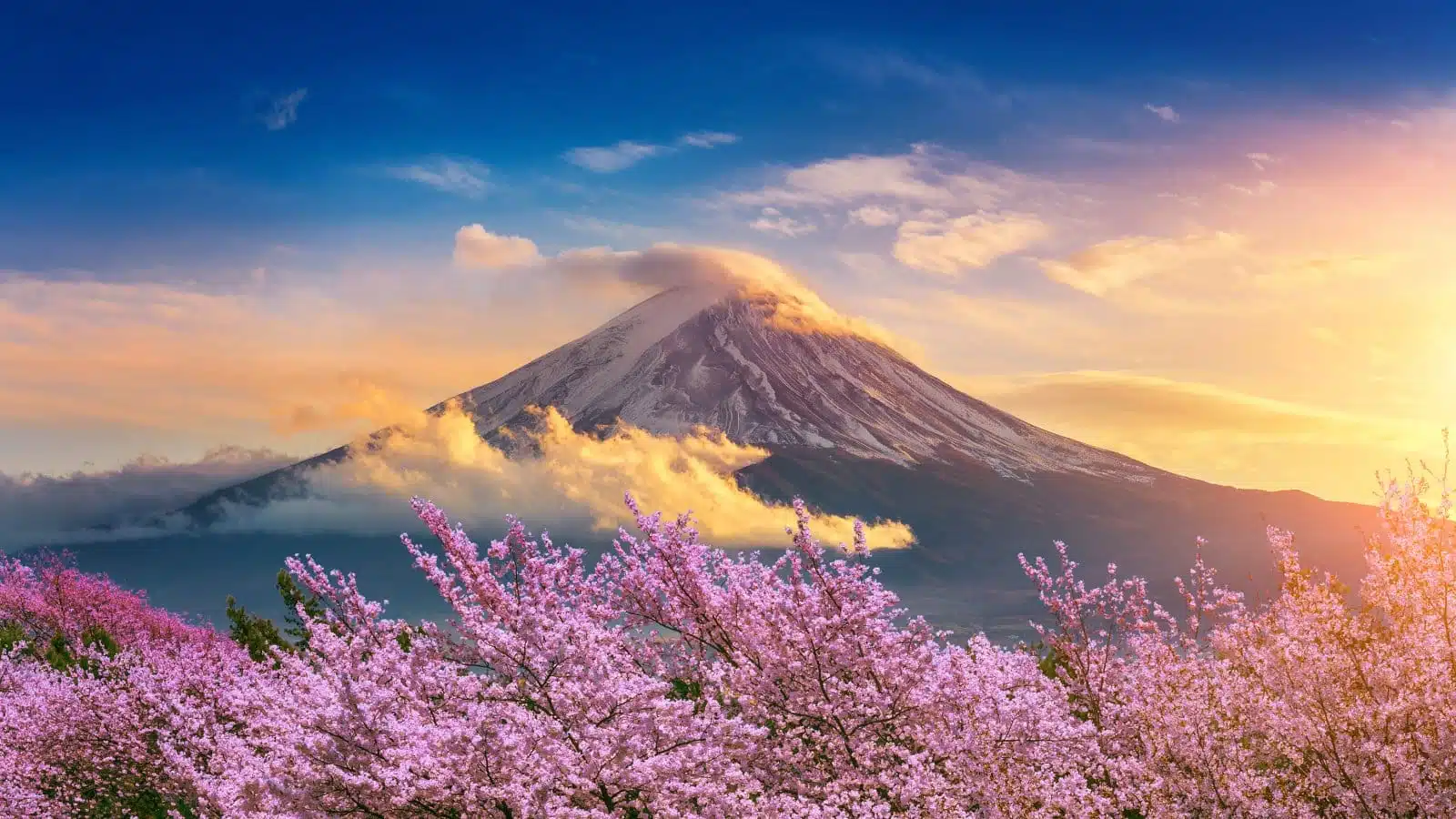
Image Credit: Shutterstock / Guitar photographer
Mount Fuji, Japan’s tallest and most iconic peak, is a fine example of natural beauty and cultural significance. This dormant stratovolcano, revered as a sacred site, has captivated artists, pilgrims, and adventurers for centuries. Climbing Mount Fuji, a popular endeavor during the official climbing season, offers a blend of physical challenge and spiritual fulfillment. The ascent, often undertaken at night, culminates in a breathtaking sunrise at the summit, offering panoramic views that stretch as far as Tokyo on clear days. The area surrounding Mount Fuji enriches the experience with serene lakes, historic shrines, and soothing hot springs, embodying the harmonious blend of nature and culture that Japan is renowned for.
Insider’s Tip
Climb during the official climbing season in July and August for the safest conditions.
When To Travel
July to early September for mild weather and open climbing routes.
How To Get There
Fly into Tokyo and travel to the base of Mount Fuji by bus or train.
2. Kīlauea, Hawaii, USA
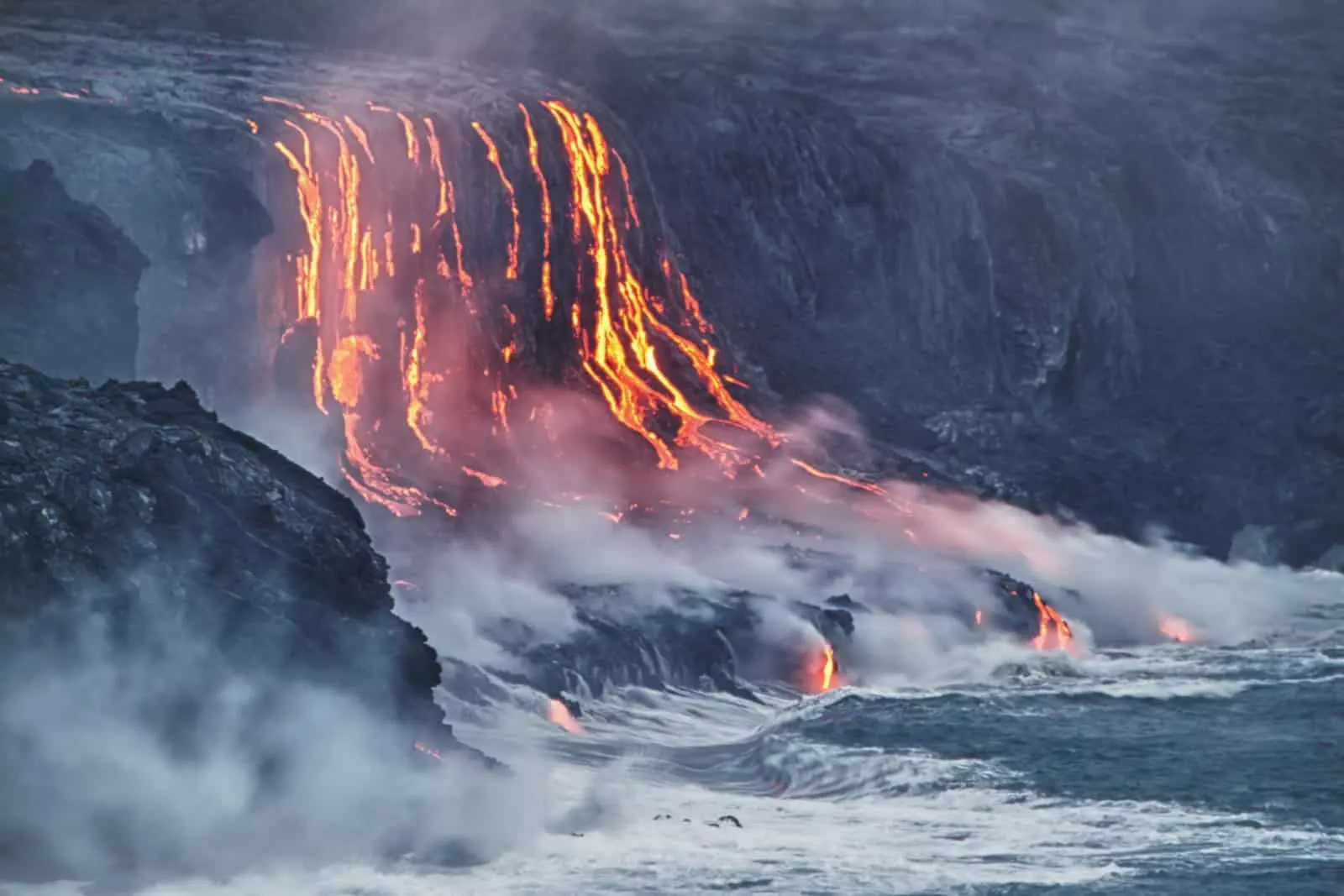
Image Credit: Shutterstock / Alexey Kamenskiy
The Kīlauea volcano, part of the Hawaii Volcanoes National Park, is evidence of nature’s raw and unbridled power. As one of the most active volcanoes on Earth, it offers a unique opportunity to witness the creation and reshaping of landscapes. The park provides various trails and guided tours, allowing you to safely explore the diverse volcanic features, including craters, lava tubes, and vast lava fields. The experience is heightened by the lush tropical surroundings, rich in native flora and fauna is a holistic immersion into one of the most dynamic ecosystems on the planet.
Insider’s Tip
Visit the Jaggar Museum for insights into the volcano’s history and current activity.
When To Travel
Year-round, though conditions can vary based on volcanic activity.
How To Get There
Fly into Hilo International Airport and drive to Hawaii Volcanoes National Park.
3. Eyjafjallajökull, Iceland
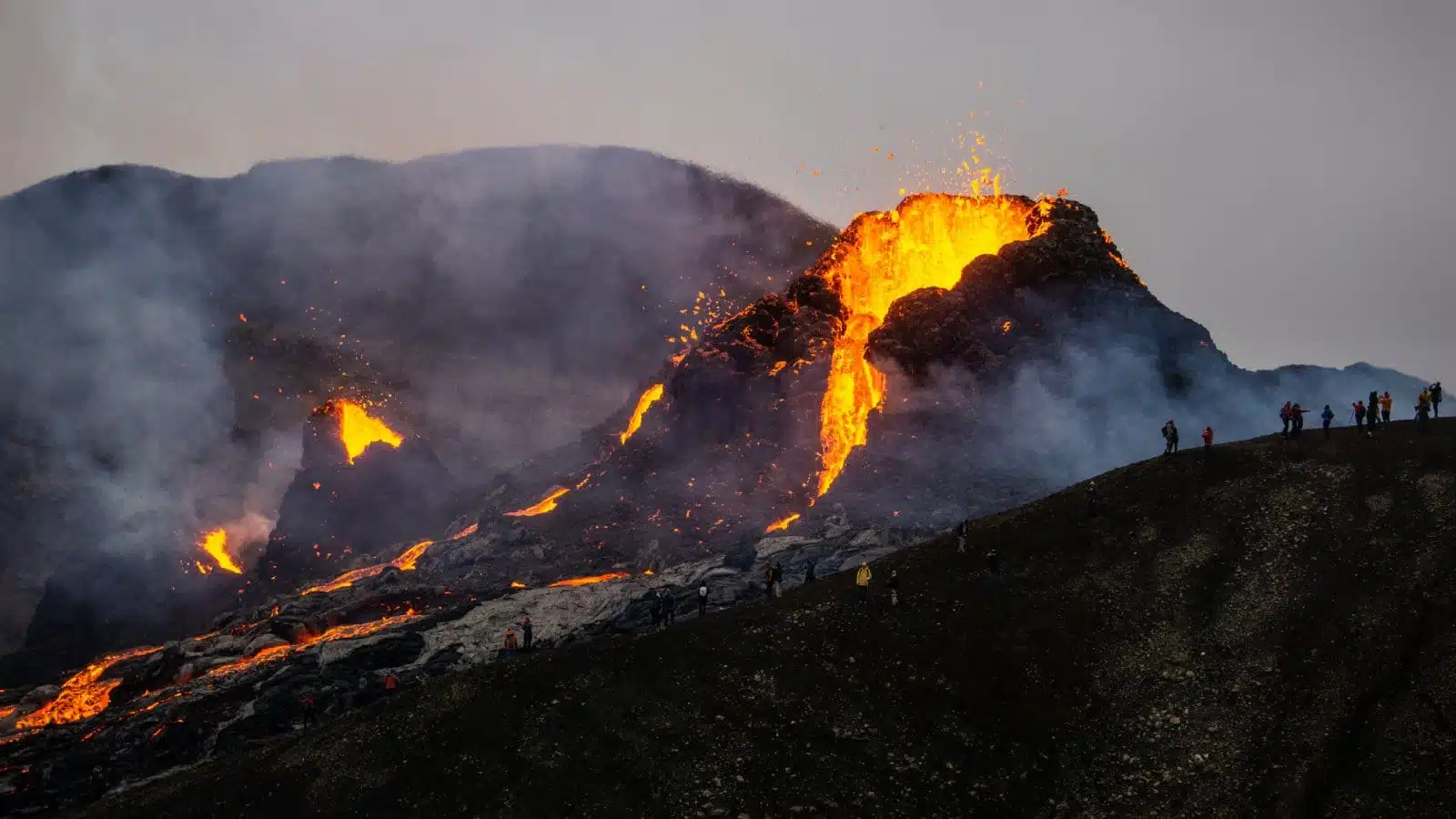
Image Credit: Shutterstock / DanielFreyr
Eyjafjallajökull, the Icelandic volcano famous for its 2010 eruption, presents an adventure through some of the most dramatic landscapes in Iceland. This glacier-covered volcano offers challenging hikes that lead you through diverse terrain, including ice caps, ash fields, and rugged mountains. The surrounding area, characterized by picturesque waterfalls like Seljalandsfoss and Skógafoss and the stark beauty of the Icelandic highlands, provides an all-encompassing experience of Iceland’s natural landscapes. Exploring Eyjafjallajökull is a hiking endeavor and a journey through a land where the elements of ice and fire coexist in spectacular harmony.
Insider’s Tip
Take a guided glacier hike to navigate and understand this dynamic environment safely.
When To Travel
Summer (June to August) for the best hiking conditions.
How To Get There
Fly into Keflavík International Airport and drive along the South Coast.
4. Mount Vesuvius, Italy
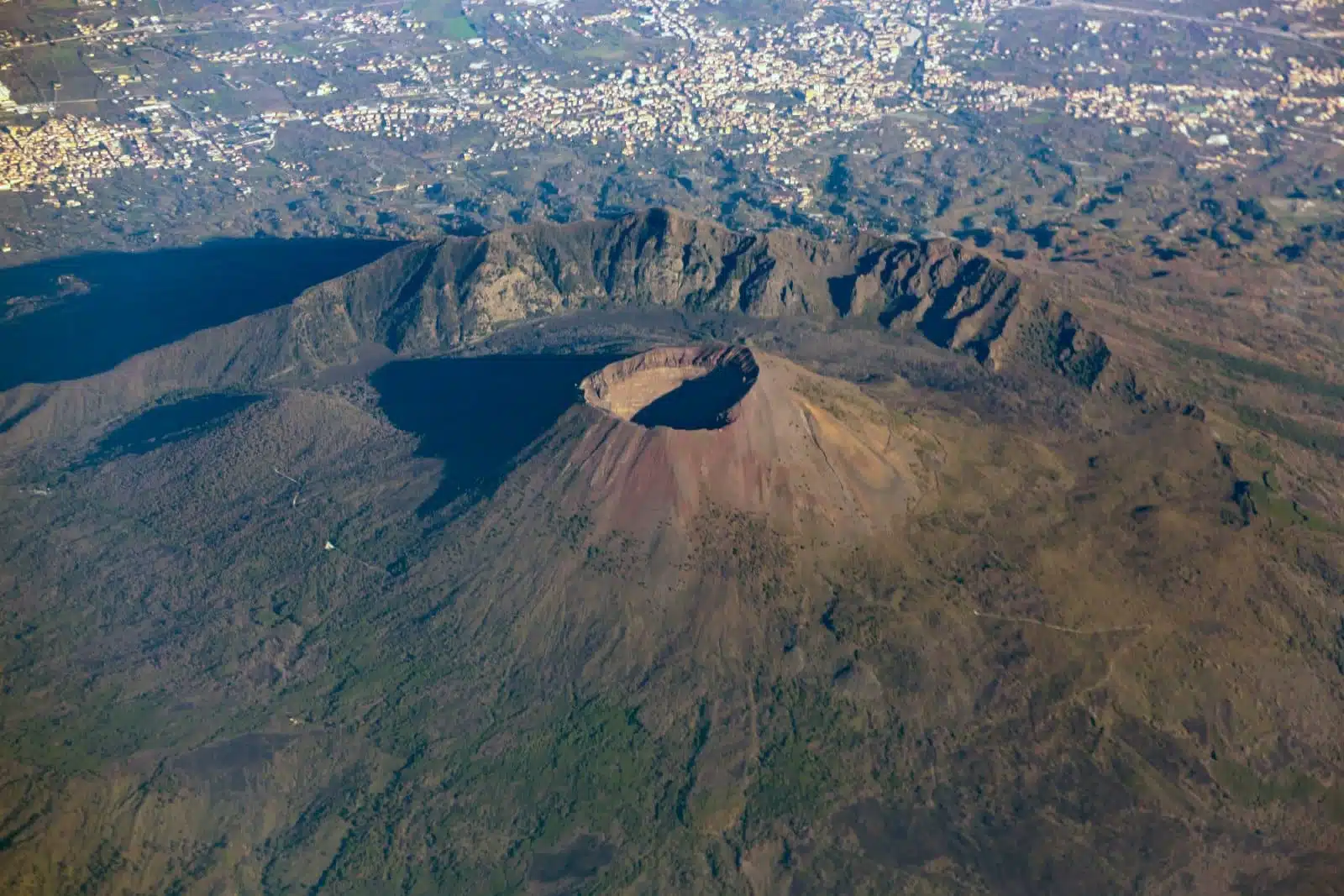
Image Credit: Shutterstock / Belish
The infamous Mount Vesuvius, a symbol of nature’s unpredictable power, offers a unique historical and geological exploration. Overlooking the bustling city of Naples, this active volcano is best known for its catastrophic eruption in AD 79, which buried the ancient cities of Pompeii and Herculaneum. Hiking to the summit of Vesuvius provides a physical challenge and an educational journey into the history of one of the world’s most famous volcanic eruptions. The panoramic views from the crater rim are a stunning contrast between the serene beauty of the Bay of Naples and the latent power of the volcano.
Insider’s Tip
Combine your visit with a tour of the Pompeii ruins for a complete historical experience.
When To Travel
Spring (April to June) or fall (September to October) to avoid extreme heat.
How To Get There
Fly into Naples International Airport and take a short drive or a guided tour to Mount Vesuvius.
5. Mount Kilimanjaro, Tanzania
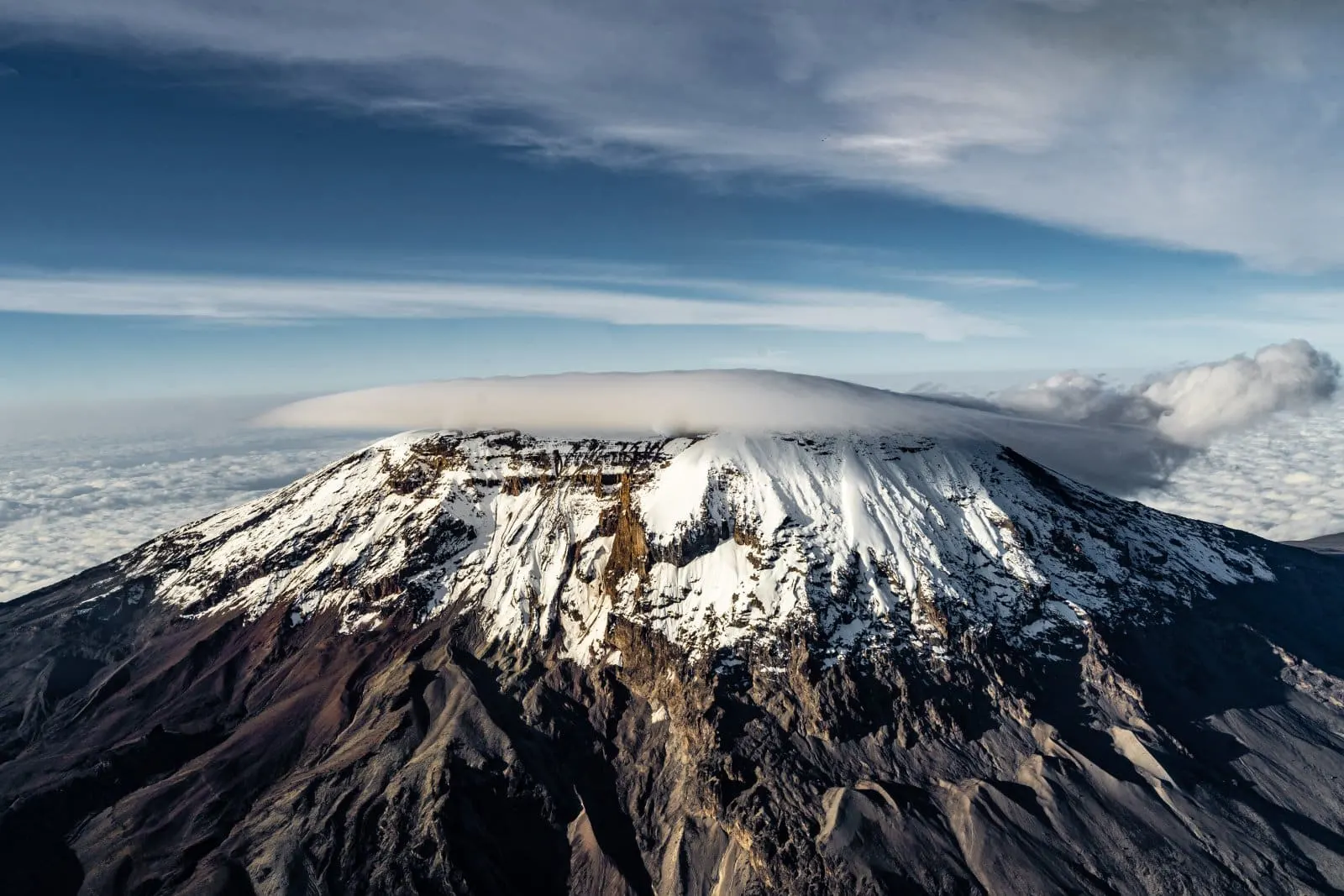
Image Credit: Shutterstock / Aboubakar Malipula
Mount Kilimanjaro, the highest peak in Africa and a dormant volcano, offers a trekking experience that is as varied as it is challenging. The journey to its summit, Uhuru Peak, takes you through a tapestry of ecological zones, from lush rainforests and alpine meadows to barren lunar landscapes at higher altitudes. Each step towards the summit unfolds different facets of Kilimanjaro’s natural beauty, with opportunities to encounter wildlife and gaze upon the vast African plains below. Climbing Kilimanjaro is a journey that tests your endurance and rewards you with one of the most spectacular views on the continent.
Insider’s Tip
Choose the Lemosho or Machame route for a more scenic and less crowded climb.
When To Travel
January to March and June to October for the best climbing conditions.
How To Get There
Fly into Kilimanjaro International Airport and travel to the mountain base.
6. Arenal Volcano, Costa Rica
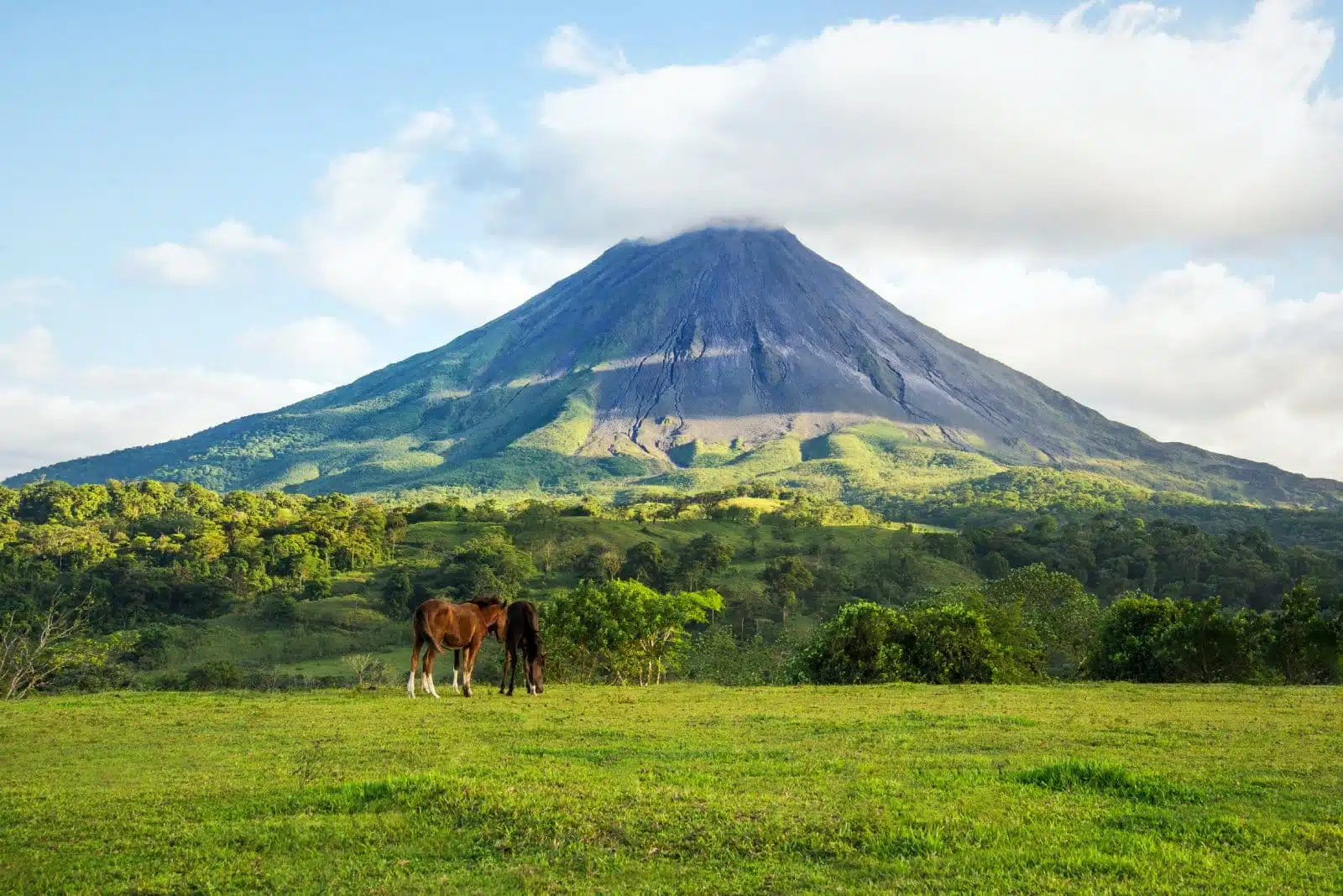
Image Credit: Shutterstock / Esdelval
Costa Rica’s Arenal Volcano is a picture-perfect stratovolcano, offering an awe-inspiring backdrop for various outdoor adventures. Its symmetrical cone, often shrouded in mist, rises above the surrounding lush rainforest, creating a stunning contrast. Visitors can explore the numerous trails that traverse the national park, offering glimpses of the volcano’s past eruptions and the area’s rich biodiversity. The region is also famous for its hot springs – natural thermal baths heated by the geothermal activity of Arenal, providing a relaxing experience amidst the natural beauty. With activities ranging from hiking and zip-lining to bird-watching and waterfall visits, Arenal is a destination that combines adventure with the tranquility of nature.
Insider’s Tip
Enjoy the natural hot springs in the area, heated by the geothermal activity of Arenal.
When To Travel
May to November for lush landscapes, though it’s rainier; December to April for drier weather.
How To Get There
Fly into Juan Santamaría International Airport and drive to La Fortuna, the nearest town to Arenal.
7. Santorini, Greece
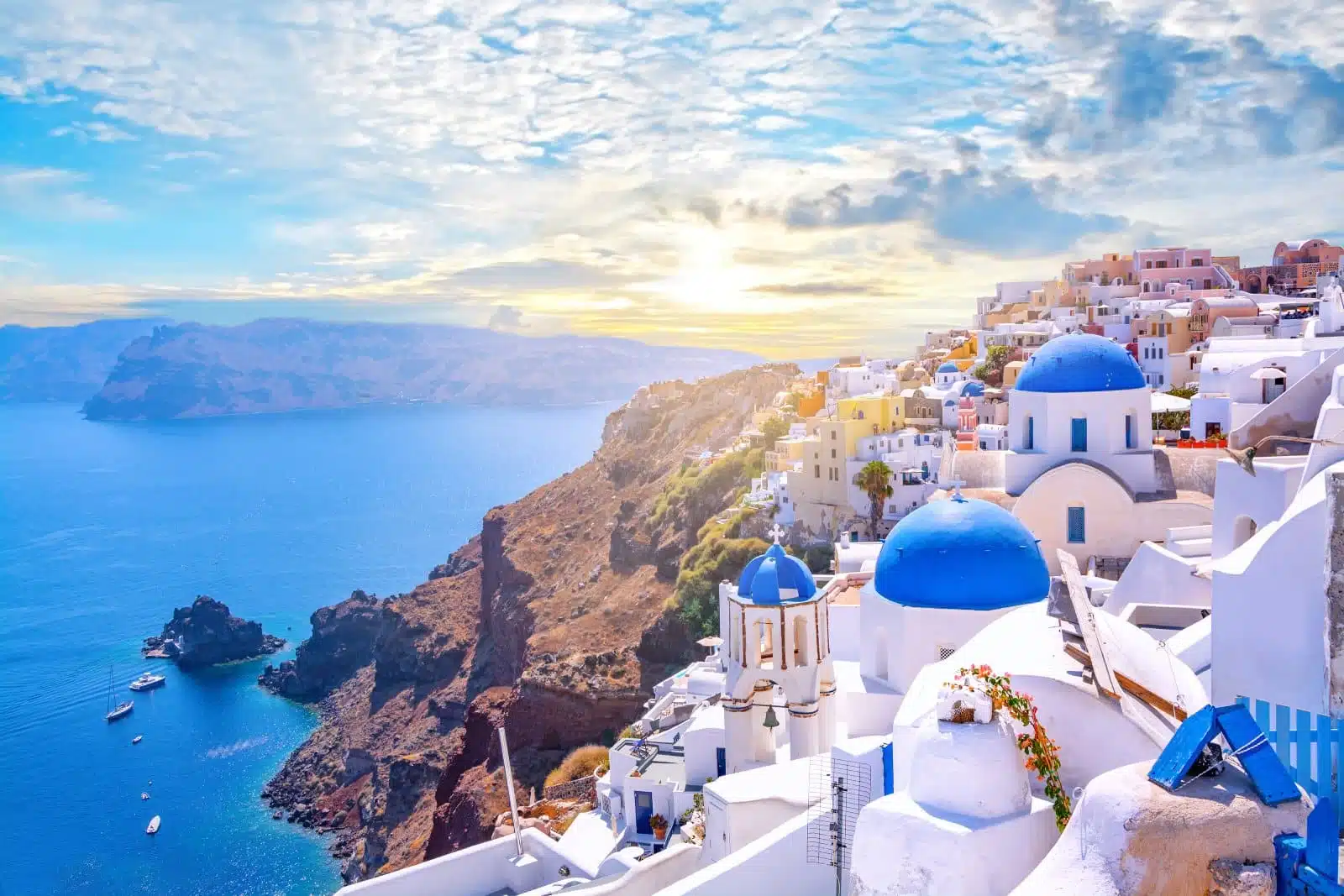
Image Credit: Shutterstock / Marina Datsenko
Santorini, a volcanic island in the Aegean Sea, is renowned for its dramatic beauty and captivating sunsets. The island, formed by a massive volcanic eruption, features a stunning caldera with cliffs towering over the azure sea. Exploring Santorini provides a unique insight into the powerful forces that shaped this beautiful landscape. The island’s whitewashed buildings, blue-domed churches, and charming villages like Oia and Fira offer a picturesque setting for discovering local history and culture. The volcanic beaches, with their distinctive black, red, and white sands, indicate Santorini’s volcanic past, making it a destination that seamlessly blends natural wonder with idyllic charm.
Insider’s Tip
Take a boat tour to Nea Kameni to walk on an active volcanic island.
When To Travel
Late April to early November for the best weather.
How To Get There
Fly to Santorini Airport or take a ferry from Athens.
8. Yellowstone Caldera, USA
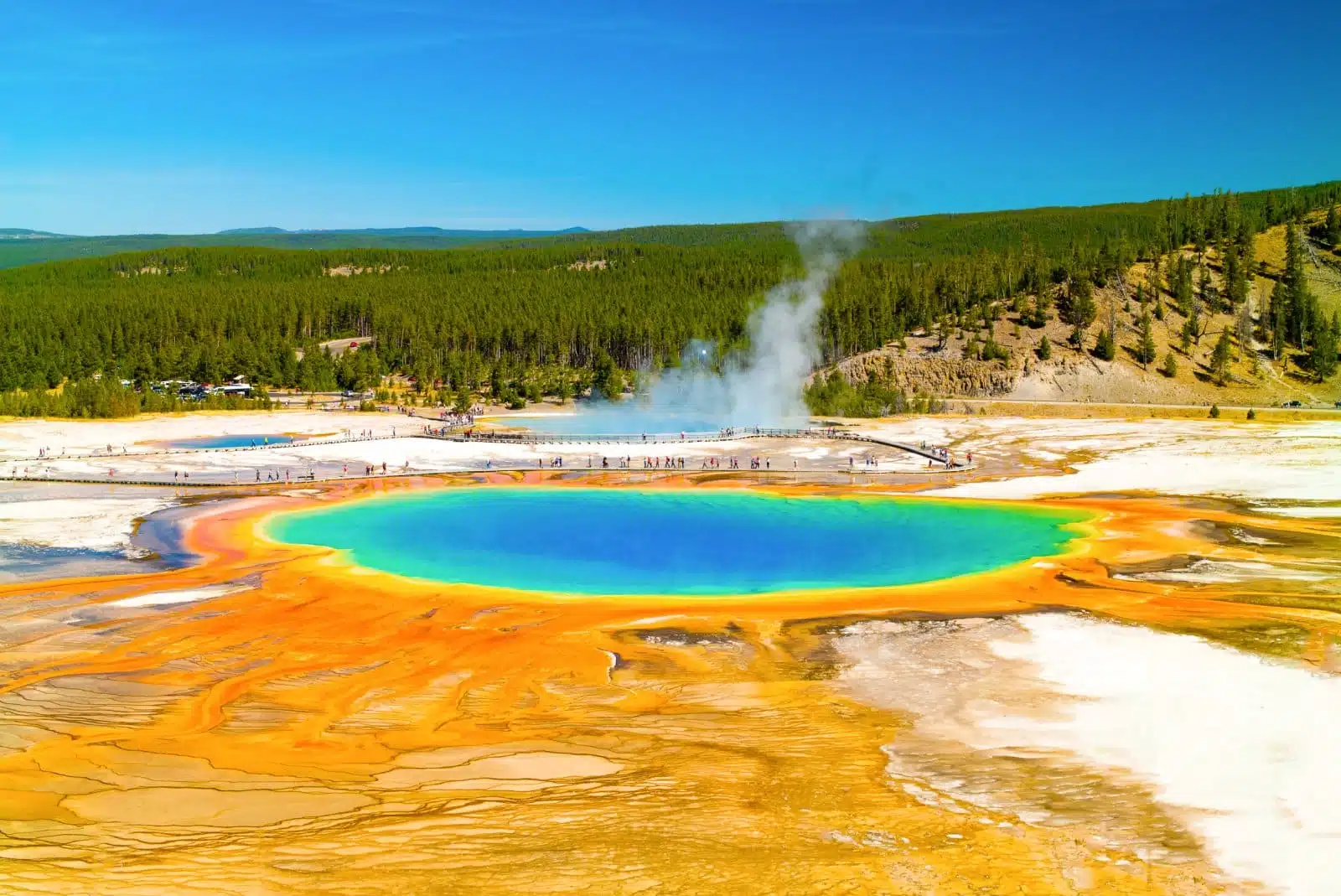
Image Credit: Shutterstock / Lynn Yeh
The Yellowstone Caldera, the volcanic centerpiece of Yellowstone National Park, is a geological spectacle. This supervolcano, though dormant, manifests its presence through spectacular geothermal features like geysers, hot springs, and fumaroles. Exploring Yellowstone offers a unique opportunity to witness the power of volcanic activity and its role in shaping the landscape. The park is a geological seventh heaven and a haven for wildlife, with opportunities to see bison, elk, wolves, and bears. Visiting the Yellowstone Caldera explores one of the most dynamic and diverse ecosystems in the United States, where the forces of nature create a landscape of unparalleled beauty.
Insider’s Tip
Visit the Old Faithful and the Grand Prismatic Spring for classic Yellowstone volcanic experiences.
When To Travel
May to September for pleasant weather and full access to park features.
How To Get There
Fly into Bozeman, Billings, Jackson Hole, or West Yellowstone airports.
9. Mount Etna, Italy
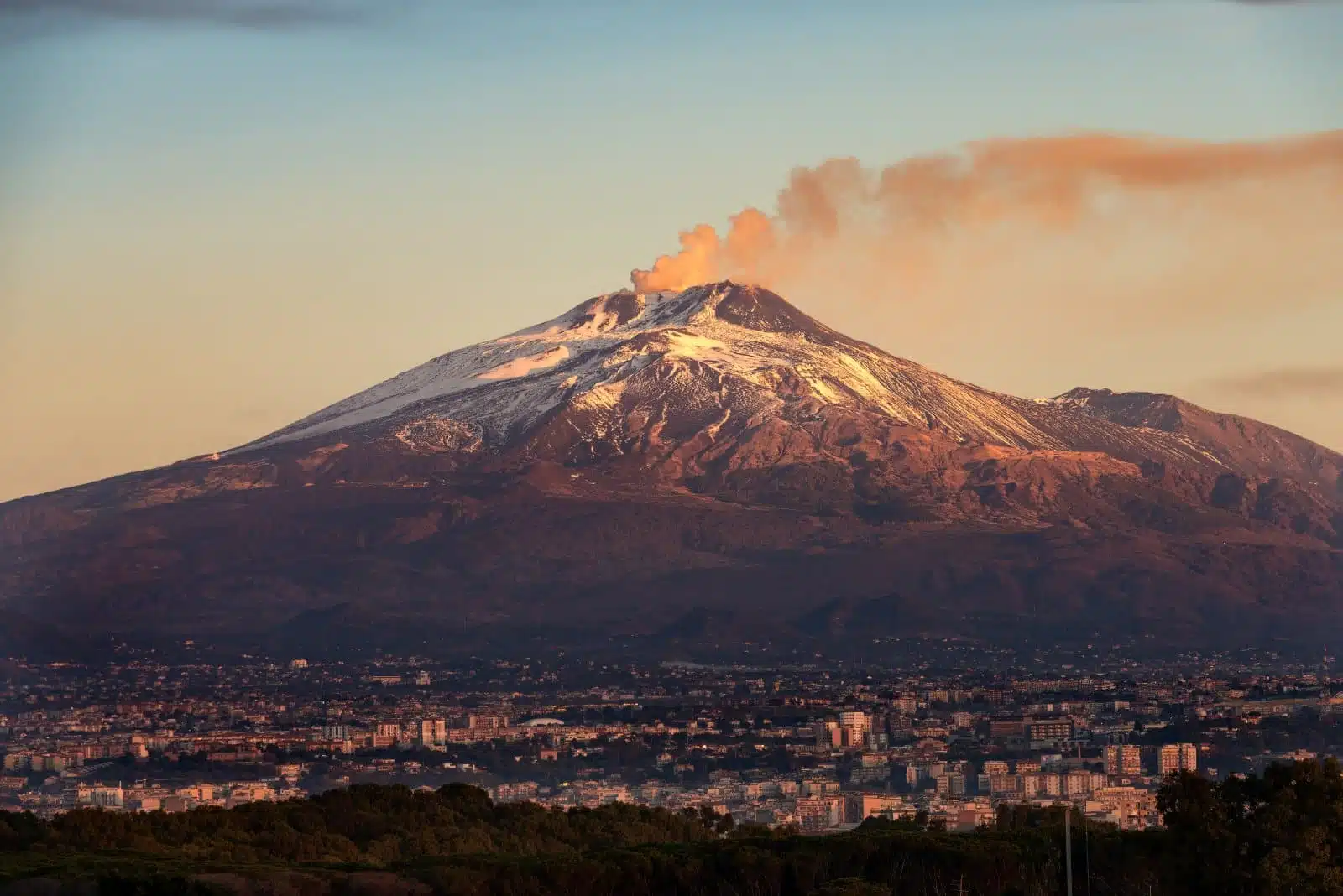
Image Credit: Shutterstock / Alberto Masnovo
Mount Etna, dominating the skyline of eastern Sicily, is one of the most active volcanoes in the world. Its frequent eruptions and diverse volcanic landscapes make it a fascinating destination for exploration. Visitors can take guided tours to safely experience Etna’s craters, lava flows, and unique geological formations. The surrounding area, enriched by the fertile volcanic soil, is famous for its vineyards and orchards, offering a taste of the region’s culinary delights. The contrast between Etna’s fiery nature and the verdant landscapes of Sicily provides a unique backdrop for an unforgettable volcanic adventure.
Insider’s Tip
Take a guided tour to the summit craters for a safe and informative experience.
When To Travel
Late spring and early fall for mild weather and clear skies.
How To Get There
Fly into Catania-Fontanarossa Airport and drive or take a guided tour to Mount Etna.
10. Bromo Tengger Semeru National Park, Indonesia
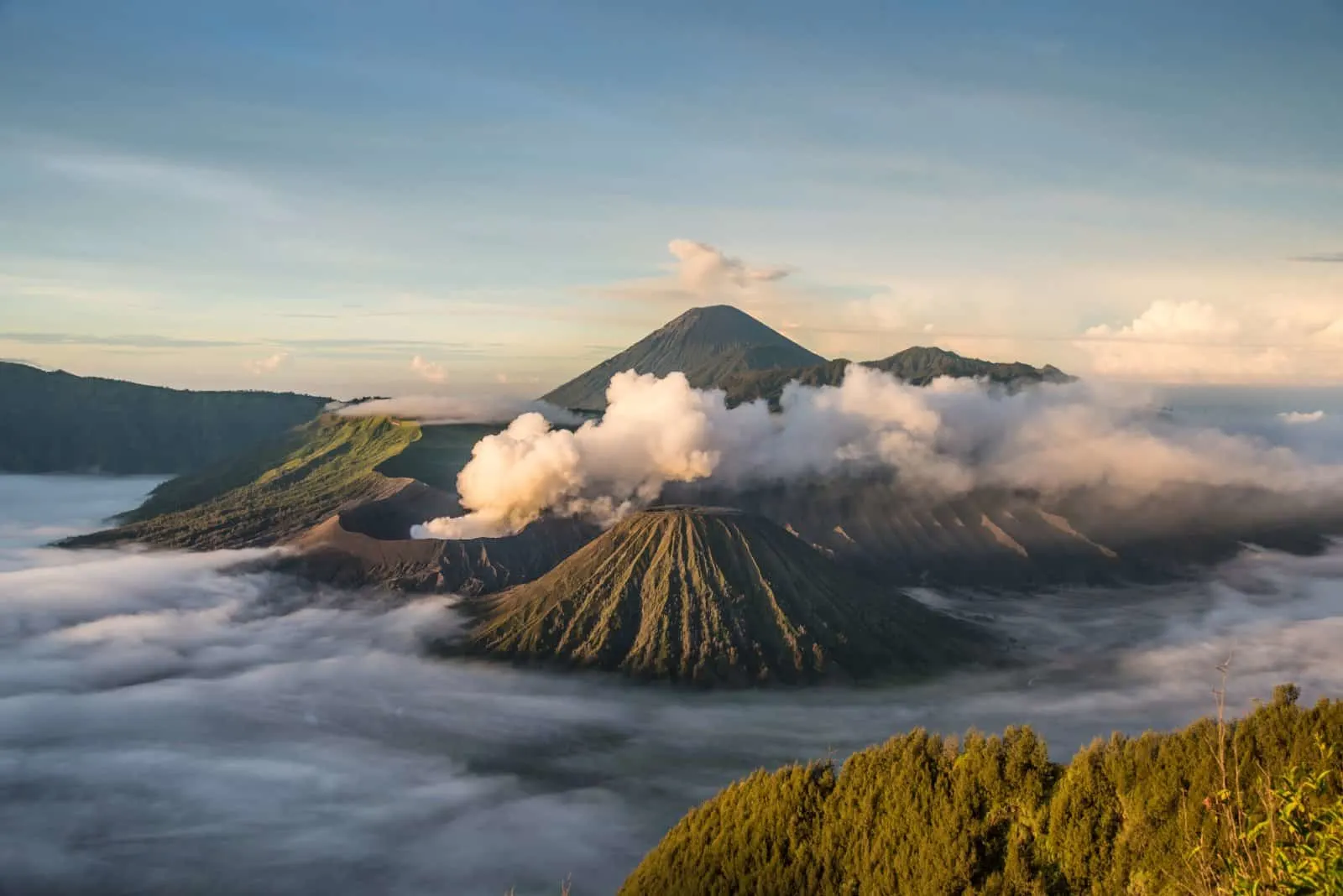
Image Credit: Shutterstock / Sutthi Chuvichit
Indonesia’s Bromo Tengger Semeru National Park is home to some of the country’s most iconic volcanoes, including Mount Bromo and Mount Semeru. The park offers a surreal landscape with the vast Tengger Sand Sea, from which the volcanic cones rise dramatically. The experience of watching the sun rise over this otherworldly terrain is a highlight for many visitors. Hiking and horseback riding across the sea of sand to the crater of Mount Bromo offers a sense of adventure and a connection to the elemental forces of nature. The park’s higher altitudes provide cooler temperatures and stunning panoramic views, making it a captivating destination for those seeking beauty and adventure in a volcanic setting.
Insider’s Tip
Witness the sunrise from Mount Penanjakan for spectacular views of Mount Bromo.
When To Travel
April to October during the dry season for the best views.
How To Get There
Fly to Surabaya Airport and drive to the national park.
11. Pacaya Volcano, Guatemala
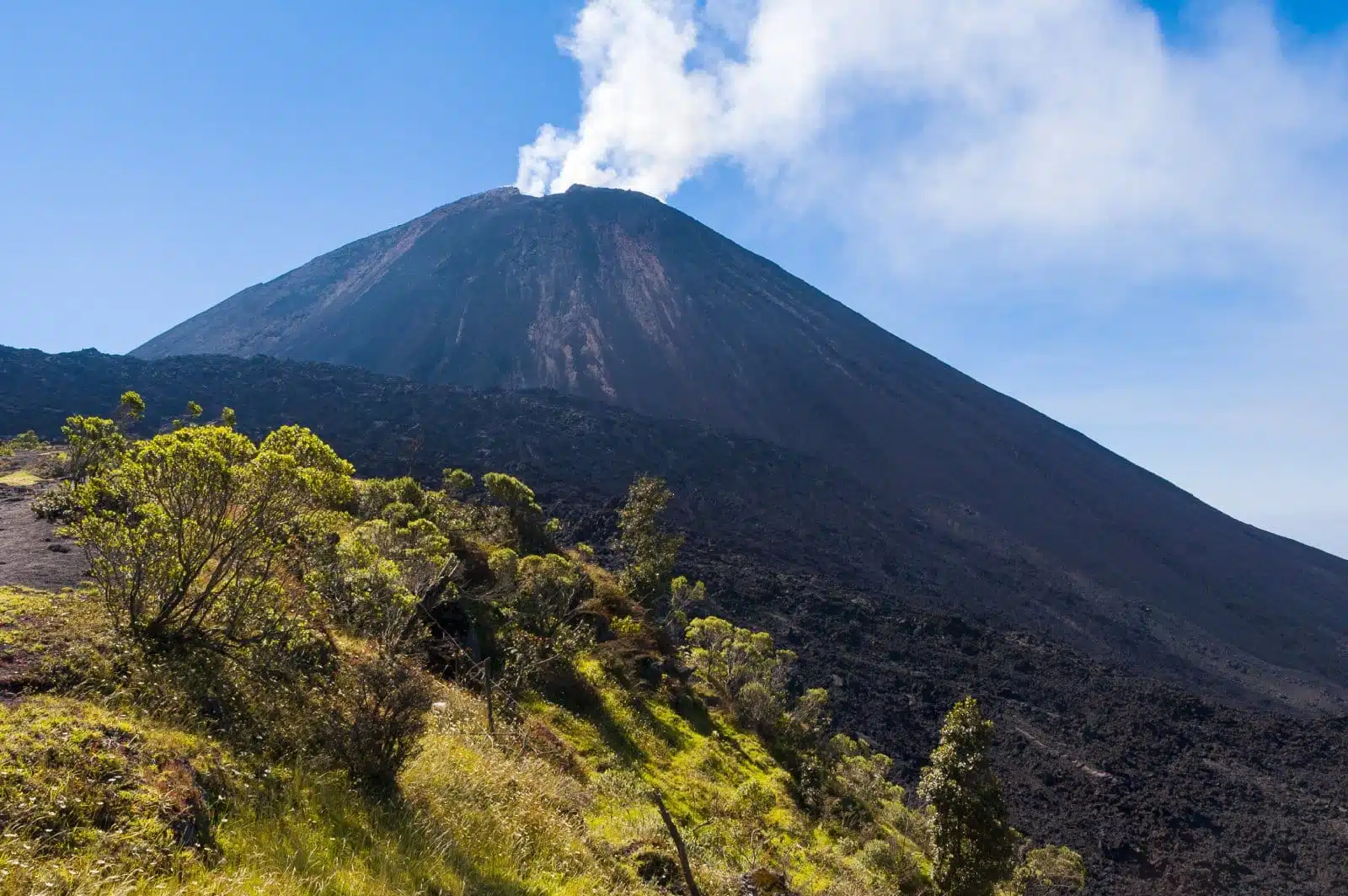
Image Credit: Shutterstock / Byron Ortiz
Pacaya, one of Guatemala’s most active volcanoes, offers a relatively accessible and rewarding hike to those seeking volcanic adventures. The ascent provides stunning views of the surrounding landscape and, on clear days, a glimpse of nearby volcanoes. Pacaya’s frequent activity often allows visitors to see fresh lava flows and experience the warmth of volcanic activity up close. The surrounding area, rich in cultural heritage and natural beauty, adds depth to the experience, making a trip to Pacaya a blend of adventure and cultural exploration.
Insider’s Tip
Take an evening hike for a chance to see glowing lava.
When To Travel
November to April for dry weather.
How To Get There
Fly into La Aurora International Airport and travel to Pacaya by car or guided tour.
12. Ruapehu, New Zealand
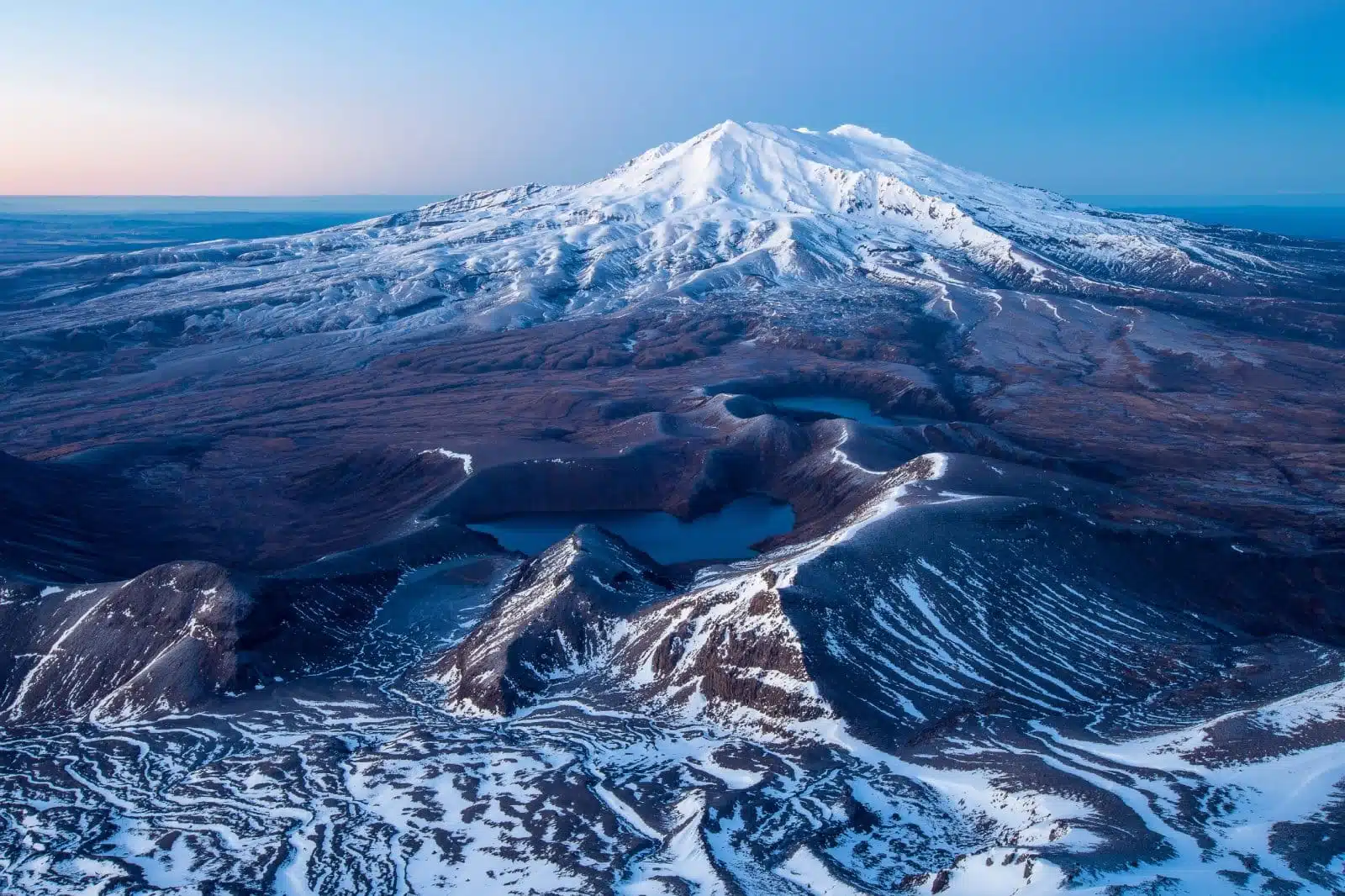
Image Credit: Shutterstock / highluxphoto
Mount Ruapehu, in New Zealand’s North Island, is an active stratovolcano offering a unique combination of geological exploration and outdoor recreation. In the Tongariro National Park, a UNESCO World Heritage Site, Ruapehu’s dramatic landscapes serve as both a summer hiking paradise and a winter skiing destination. The mountain’s craters, lava flows, and alpine lakes provide insight into the volcanic forces that shaped this stunning region. Exploring Ruapehu is not just about encountering an active volcano; it’s about immersing oneself in New Zealand’s striking natural beauty and outdoor adventure culture.
Insider’s Tip
Explore the Tongariro Alpine Crossing, considered one of the best one-day hikes in the world.
When To Travel
December to February for hiking; June to October for skiing.
How To Get There
Fly into Taupo or Wellington Airport and drive to Tongariro National Park.
The Bottom Line
Exploring the world’s iconic volcanoes is more than an adventure; it’s a journey through the primal forces that shaped our planet. Each volcano tells a story of the Earth’s fiery interior, offering breathtaking landscapes and unique geological formations. As you stand on the rim of a crater or witness the glow of lava, you connect with the Earth in a profound and unforgettable way. These volcanic adventures remind us of nature’s immense power and beauty, inviting us to explore, learn, and respect the dynamic planet we call home. Embrace the challenge, prepare for the awe-inspiring, and enter a world where fire meets the sky.
More From The Green Voyage
Top 10 Trending Travel Destinations 2024
6 Essential Banking Apps for International Travel – Managing Your Finances on the Go
Traveling With Kids – 10 Tips to Create Memorable Family Holidays
The post Exploring the World’s Volcanoes 2024 – A Guide to 10 Volcanic Adventures first appeared on The Green Voyage.
Featured Image Credit: Shutterstock / Alanstix64.
For transparency, this content was partly developed with AI assistance and carefully curated by an experienced editor to be informative and ensure accuracy.
